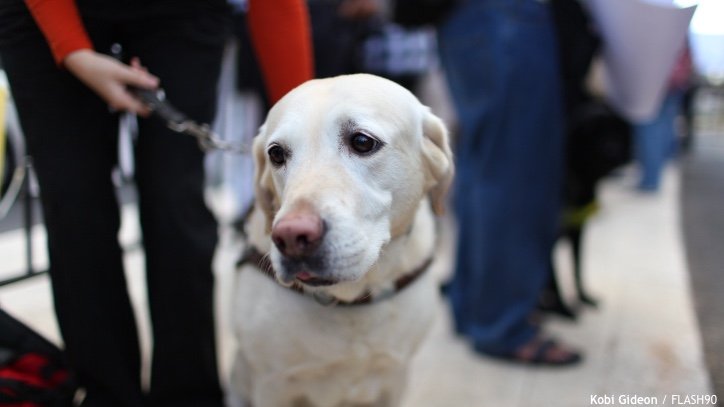An Israeli start-up is using dogs to diagnose cancer. Individuals are being asked to send a saliva sample to the company, called Prognose 220 Mil, where highly-trained canines are able to smell signs of cancer.
Dr. Uri Yoel, an instructor at Ben Gurion University in the Negev, has been researching the ability of dogs to determine illnesses through their highly-developed scent capabilities. Already back in 2013, he concluded that various forms of cancer have a common smell that can be detected by dogs.
“The main significance of the test is life-saving early detection (of cancer). Since dogs can identify the characteristic scent of the disease,” says Uri Bekman, a dog trainer at Prognose.
For centuries, man’s best friend has helped sniff out scents that the human nose cannot pick up. Researchers in the United States had discovered about decade ago that dogs can accurately detect advanced stages of colon cancer using breath and stool samples of patients. The study showed that dogs were able to successfully identify even early stages of cancer in 33 out of 36 (92%) breath samples and in 37 out of 38 (98%) stool samples.
According to Medical Detection Dogs, a US-based lab has shown that dogs are able to detect tiny odor concentrations, around one part per trillion (the equivalent of one teaspoon of sugar in two Olympic sized swimming pools). Early diagnosis is one of the most effective ways of fighting cancer, but current tests often take time and require surgery and biopsies to confirm a diagnosis. Research is showing that dogs can detect many cases of cancer earlier, and with greater accuracy, than current test methods.
One of the earliest examples that dogs might be able to sniff out cancer occurred in 2013, when Stephanie Herfel of Milwaukee, Wisconsin noticed that her Siberian husky would smell her stomach multiple times before running off to hide. Since Herfel had been experiencing stomach pains, she believed that her dog was reacting to something that was wrong. After a few weeks her doctor told her that she had an advanced stage of ovarian cancer. Herfel underwent a hysterectomy and chemotherapy.
In subsequent years, her dog again acted strange prompting her to return to her doctor. Indeed, she discovered that the cancer had returned. She feels that her dog Sierra has saved her life on multiple occasions.











